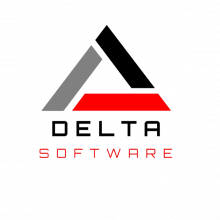
There are 12 Companies in Italy
that provide Hosting and Cloud Services!
In 2025, the IT Services market in Italy is expected to reach $26.22 billion, with the biggest segment being IT Outsourcing, worth $10.53 billion. The country reached the 26th position in the Networked Readiness Index (NRI), an aggregate index that assesses the countries’ overall environment for innovation and ICTs. It also measures their readiness for ICT uptake, the level of usage by companies, society, and the private sector, and the overall level of impact on society and the economy.
Discover Top IT Companies in Italy specialized in Hosting and Cloud and other related services. Find the best IT service providers for your projects.
Entrepreneurs often struggle to differentiate between cloud and hosted services, which may seem similar but differ in processes. Understanding these differences can help choose the right for your business. Pick the right home for your website involves considering technical aspects, reliability, cost, and customer support and other factors.
There are more than 330,000 web hosting providers all around the world, and this number is expected to grow as the Internet expands. Even with the fierce competition, new providers continue to enter the market. At the same time, data reveals that approximately 60% of all corporate data is now stored in the cloud. It has also witnessed a 10% increase compared to the previous year, 2021.
Handpicked companies • No obligation to hire • 100% risk-free
Featured Companies in Italy
This month, the following Hosting and Cloud companies managed to provide an outstanding service and support. It's worth taking a look.
A fast-growing IT and business solutions company, empowering global businesses with cutting-edge technology and digital innovation.
Explore Top Hosting and Cloud Companies in Italy
Techgropse is a leading Mobile App and Web Development Company, dedicated to turning innovative ideas into remarkable digital solutions. 500+ Clients
Agenzia Grafica Milano e Web design
Sono un veterano del mondo SEO e marketing digitale con oltre 22 anni di esperienza nella comunicazione strategica.
Services:
We can develop complex projects or online showcases. We create for our customers navigable sites that can be consulted from any device and operating s...
Services:
DIGITALIZE YOUR BUSINESS Your technology partner for successful il business
WpWeb was founded in March 1997 by a group of professionals with solid and concrete experience in the ICT, marketing and web application development s...
We are a Creative Agency based in Rome that tries to make a difference. We devolve part of our income to support organisations that save animals.
Filter Hosting and Cloud Companies in Italy by Cities
Find the right tech company near you or from a specific city. Some of the best companies might be located in smaller cities.
Find more Hosting and Cloud companies around the world
TechBehemoths is the world's most advanced and user-friendly platform to match IT Companies with real clients without hustle.
The Italian ICT Industry: Data, Companies and Predictions
Data from the Global Information Technology Report 2019 shows that Italy is one of the countries that improved the most during 2019 in its ability to leverage information and communication technologies to improve its competitiveness and the well-being of its population. In 2025, the IT Services market in Italy is expected to reach $26.22 billion, with the biggest segment being IT Outsourcing, worth $10.53 billion.
The country reached the 26th position in the Networked Readiness Index (NRI), an aggregate index that assesses the countries’ overall environment for innovation and ICTs. It also measures their readiness for ICT uptake; the level of usage by companies, society, and the private sector; and the overall level of impact on society and the economy.
Why Should You Work With Italian IT Companies?
Italian IT companies and web agencies are among Europe’s leaders in software development and computing engineering, having a good price/quality ratio which allows them to be competitive on the European ICT market. With more than 132,400 ICT companies registered in 2025 and around 631,500 professionals working within the industry, Italian companies provide innovative solutions for both local and international clients.
What You Should Be Aware of When Working With Italian IT Companies
High demand for IT services and products on the local market creates, in turn, an even higher demand for IT professionals - a luxury resource for Italian IT companies and for the entire industry. This makes Italian IT and web agencies outsource professionals and talents from other, cheaper countries, which, on average, makes the service quality lower than it should be.
Even though Italian companies are encouraged to provide long-term training sessions for underqualified outsourced professionals, this is a costly process that not all companies are willing to undertake.
Are Italian IT And Web Companies Reliable?
In spite of tough conditions and challenges Italian IT companies and the entire industry face, Italy has its own niche of the market that has been loyal for years, and reports from Forbes reveal that the trends will keep the same pace. This business model of moving slowly and getting long-term contracts enables Italian IT companies and web agencies to increase their reputation as trustworthy.
How the Italian IT Industry Relates to the Neighboring Countries
Italy has been the first country in the world to approve a Declaration of Internet Rights through a parliamentary vote: the Italian Bill of Internet Rights was ratified on 28 July 2015 by the Chamber of Deputies and paves the way for digital citizenship. Additional progress has come in the form of the Italian Freedom of Information Act and the modification of the copyright law of 1941, which has been updated to cover telecommunication networks.
The IT industry in Italy is very close to neighboring France and Switzerland, with investment, trade, and partnerships. Italy’s sector is developing with the government’s support for digital optimization. Switzerland offers higher salaries and a business-friendly environment. France, with Switzerland, provides various perks in innovation and market access for Italian IT companies.
What is Hosting and Cloud and what are its benefits for your projects?
Entrepreneurs often struggle to differentiate between cloud and hosted services, which may seem similar but differ in processes. Understanding these differences can help choose the right for your business. Pick the right home for your website involves considering technical aspects, reliability, cost, and customer support and other factors.
There are more than 330,000 web hosting providers all around the world, and this number is expected to grow as the Internet expands. Even with the fierce competition, new providers continue to enter the market.
At the same time, data reveals that approximately 60% of all corporate data is now stored in the cloud. It has also witnessed a 10% increase compared to the previous year, 2021.
Cloud Services
Cloud services are computing services provided by third-party hosts through the internet and on-demand. They allow customers to access and utilize remote computing resources effortlessly. There are three main categories of cloud: Software as a service (SaaS), Platform as a service (PaaS), Infrastructure as a service (IaaS).
Benefits of Using Cloud-Based Services
Cloud services offer several advantages that are not available with hosted solutions:
-
IT Optimization: With cloud services, the provider is responsible for building and maintaining all the hardware, so your IT department doesn't have to manage servers or install and update software on individual computers. Additionally, the provider is responsible for ensuring security and resolving any problems that might come up.
-
Budget-friendly approach: Cloud services offer a cost-efficient approach where you only pay for what you use. There is no need to invest in hardware or purchase software licences that may end up being unused by your team.
-
Business system integration: To integrate various third-party cloud solutions, you can streamline workflows and enhance team collaboration and productivity. For instance integrating your cloud communications platform with a CRM. Doing so ensures employees have access to customer information before they answer incoming calls and automatically logs all calls into the CRM.
-
Increase agility and scalability: Cloud services let you make changes in just a few clicks, whether you need to shift workflows, add new features and functionality, or change the number of users.
-
Support AI, predictive analytics, and IoT: With your data in the cloud, you can easily apply these advanced technologies to improve efficiency, gain new insights, and future-proof your business.
-
Support remote workforces: The workforce can access cloud services anytime, anywhere, using any device, with just an internet connection and login credentials.
Hosting Services
Hosted services, much like cloud-based solutions, are managed by a third-party provider and accessed through the internet. With hosted solutions, the provider owns and maintains physical servers in a private location rather than relying on a public cloud. This allows the service to be accessed online without the need for installing hardware or software. Users typically access it through a virtual private network or remote desktop.
Benefits of Hosting Services
Hosted services offer some of the same advantages as cloud solution, including:
-
Remote access and the ability to integrate with certain other cloud solutions. Because the software and hardware are maintained by the provider, there's also less for IT to manage than with traditional computing solutions (but typically more than with cloud solutions).
-
Offers greater customization options compared to cloud services, depending on the setup and service agreement.
-
Provide more control over security protocols, which is particularly beneficial for companies operating in highly regulated industries.
To Sum Up
Cloud services are a more cost-effective option compared to hosting services. They are easier to set up, manage, and maintain. Although hosting services offer more control, they require additional IT work and often come at a higher price. However, it's important to analyze your specific business requirements before deciding on a hosting type. At the moment Techehemoths has almost 800 Hosting & Cloud service providers.
Take a look at their profiles and feel free to contact them, the smart filters will also help you, Moreover, you can submit your project and our team will hand-pick and send you the best matching service providers, and you will get free quotes in about 1-hour. Also, if you want to learn more about cloud and hosting services, check out our blog for additional information.











